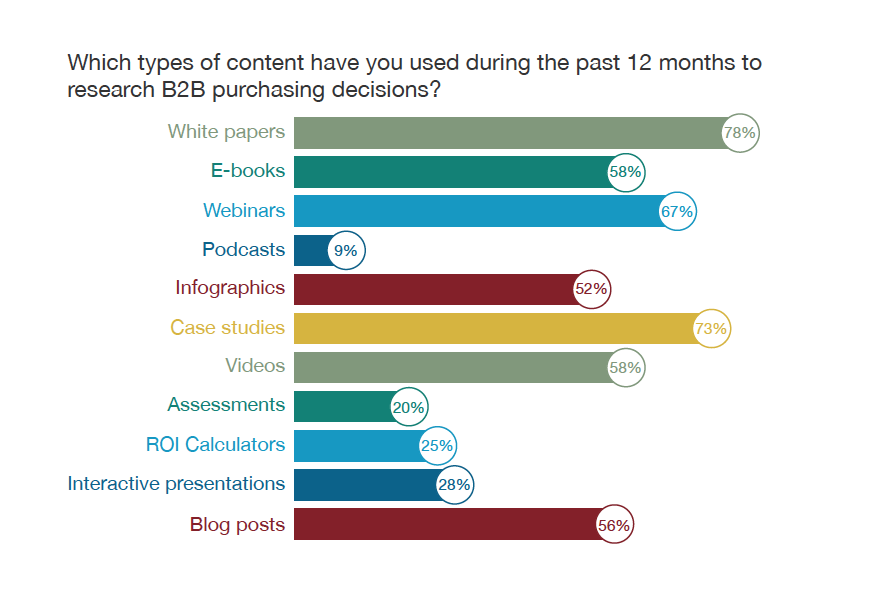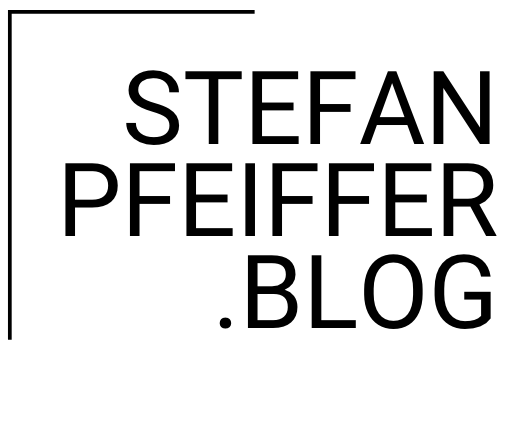Content marketing is currently on everyone’s lips – that is to say, on marketers’ lips. Customers are apparently just waiting to be won over with great new content. Critics are quick to decry content marketing as a vague concept that is little more than hot air. I don’t quite share that opinion, but I do think that good content is always important, no matter what. To my mind, it goes without saying that there are criteria for and challenges involved in creating “good content.”
Today, content is, without a doubt, a multimedia animal. Younger generations are not alone in consuming their information increasingly through the medium of video. Personally, I’m not the biggest fan of videos as I don’t really like to wear earphones, don’t want to annoy my fellow passengers when I’m traveling, and cannot turn up the sound when using the second screen and watching TV (only news, you understand… Okay, I’ll admit it: soccer too). I have also produced or managed the creation of increasing numbers of videos in recent years. However, it is important to compare user traffic with the number of hits for text information in order to decide whether the effort involved in making a video is worth it for the respective target group.
Audio – mainly podcasts – is on the way out, even though it could actually make a lot of practical sense: like listening to a podcast in the car on the way to work, for example. It sounds like a great idea, but I have never managed to download the right podcast, and I find it irritating to fiddle about with my smartphone while driving. One is supposed to keep one’s eyes on the road, after all! And I also found that I was quickly distracted and no longer able to concentrate on what the podcast was talking about. So, I could rewind it and listen to it again, right? Yeah, but I never did get round to that…
High Quality Content = Correct Spelling + well written Text
Whether video, podcast or written text, I firmly believe that content has to be of high quality and be put together in an interesting way. Correct spelling is a duty, well-written texts an art. I don’t want to go so far as to say that writing is a science, but there are loads of tips and hints out there on how to prepare texts, and many excellent reference works on style. There are rules used by journalists, for example, on how to write a good first paragraph, and the advice that it is better to write a sentence in the active voice or to use verbs rather than strings of nouns. Writing good copy can also be learned, i.e. by having “seasoned” colleagues read over your work and make suggestions.
Why do I keep harping on about this subject? Lots of texts in the IT sector are in dire need of improvement, especially those translated from sources originally in English. Not only white papers translated from English into other languages are, all too often, a catastrophe. Julia McCoy’s article on Social Media Today hits the nail on the head; far too much crappy content is produced today. Which is why I strongly feel that professional writers and copywriters should be hired, and that training should be provided for the relevant employees, who are hopefully active bloggers or contributors to forums. It’s only people who do this that will end up producing texts that interest their readers.
The Art of Story Telling: Good stories are personal, authentic and interesting
And this is where the word “storytelling” comes into play. I like it when stories are personal, authentic and interesting. By the way, only those who actually communicate with their customers, either face to face or via digital channels, are in a position to tell stories. Stories, personal experiences and the experiences of others (testimonials, etc.) are the things that readers probably find most interesting – and what influence them most. Copywriters can also receive coaching on how to find and prepare these kinds of stories. The same goes for creating video and audio content.
The whole time we are creating such texts, videos and audio streams, we need to bear in mind our recipients’ level of concentration – attention spans seem to be getting ever shorter. At a conference a few weeks ago, Jennifer Beck of Gartner said that today’s readers can concentrate on a single topic for only eight minutes. It’s no coincidence that a TED talk lasts for a maximum of 20 minutes. And, according to the most recent studies, these days we have just eight seconds to catch someone’s attention. Good headings – not just written for the sake of Google – the right keywords and an interesting image are the things that inspire Internet users to read on.
For me, these are all good reasons to create high-quality content and to avoid lapsing into the hackneyed phraseology of advertising speak and company communications jargon. A question that naturally interests me most in my job is what types of content people are consuming most often in the B2B arena right now. Here are some results from Demand Gen Report’s 2014 B2B Content Preferences Survey:

© 2014 B2B Content Preferences Survey
White papers, case studies and webinars are still at the top of the list – and these are almost always longer chunks of information that require longer attention spans. However, preferences appear to be shifting towards interactive, multimedia and shorter content, the survey concludes. The graph above only displays the sources that were used. Recommendations from other customers, so-called “peer referrals,” were actually most highly valued. Moreover, the survey’s authors recommend a stronger focus on interactive content and content that can be consumed or read on the go.
We need the Subject Matter Experts to be vocal
I would recommend a different focus: quality and people. I am convinced that we need more high-quality content written by experts. There’s enough pseudo-official marketing blather out there, and a lack of real-life experience and people who really care and know about the issues. These “subject matter experts” range from employees at your own company to business partners and customers. The platforms that these experts can and should use to get their message across are specialist communities or blogs. Breathing life into both of these areas is surely no easy task, and may require a community manager or an editorial schedule for blogs.
Hosting a blog on a company website was one of the top recommendations from Gartner’s Jennifer Beck, whom I mentioned earlier. I have experienced for myself just how difficult it is to get a blog of this kind up and running (I have deliberately avoided using the term “corporate blog” here). The fact that writing blogs is worthwhile for a whole number of reasons has been articulated by commentators. But the bar is set especially high for corporate blogs. Far too often, corporate blogs degenerate into a mere platform for the repetition of marketing and advertising messages, which are on the company website anyway. And that’s exactly what readers don’t want. Your blog shouldn’t focus on your own products and company, but the apparent benefit for the reader. A good corporate blog therefore does not revolve around the blogger’s company, but focuses on the ins and outs of topics that the company addresses in its work.
I am a fan of group blogs – blogs with multiple authors – especially in the corporate domain. This relieves the authors of much of their time pressure and emotional burden. Nevertheless, these authors still need to be given the time to write articles and to be offered coaching. This is the only way to get them on board as writers. By the way, the aforementioned subject matter experts are very sensitive to marketing speak. They don’t want to be harnessed as marketing tools; they want to preserve their status as lofty experts. And I think that’s fine – even if my saying so might make some of my colleagues want to pelt me with rotten tomatoes. Hark, my dear marketing colleagues! They will still write about the topics addressed by your company, mention your products, and communicate to the world how competent your company is.
Share your Quality Content – avoid to much Advertising and Promotions
Of course, it’s not enough to just create high-quality content. People out there need to hear about the content – via Google, tweets, Facebook, e-mail newsletters, Xing or LinkedIn, and all of these great ways to disseminate content. Some of my friends called me a marketing centrifuge because I (naturally) share content on Google+, Facebook and Twitter via tools like Hootsuite, with my multiple accounts. The text is often identical – the same 140 characters that Twitter allows me as a limiting social channel – although the content actually ought to be tailored to the respective social channel. But let’s be realistic: who has time for that?
I am not afraid to share and promote content that I consider to be important and of high quality via these channels. But I do have a problem with sharing mere advertising or event and product promotions. Of course, the people in charge of the products do ask me to do this, but I try to avoid such messages as far as possible and only share them via the official social media channels. Too much advertising can damage not only the credibility of a blog but also of an individual Web user. But this is a topic big enough for an article all its own, about what one should and shouldn’t do as a company representative and social media expert.
So what is my (preliminary) summary of content marketing?
- No matter what kind of content – text, audio, video, interactive content – the quality is what counts. That is why good content needs good authors who know how to write.
- Authenticity matters. If experts blog about their own companies, then this pays great dividends. But they need to be given adequate time, training, and a reward for their efforts.
- Corporate blogs only make sense if they are underpinned by a binding editorial schedule incorporating authors, and are not awash with company blather. Just generating content is not enough. Blogs require a plan and a concept for getting their content out to a wide audience.
- Only creatung content is not enough. You need to have a concept and plan behind it, how to share the content and to reach your target audience.
That’s my two cents on content marketing for now. There is a lot more to say, but that’s the nature of the beast. I would be happy to hear your comments and suggestions for further discussion.

Kommentar verfassen